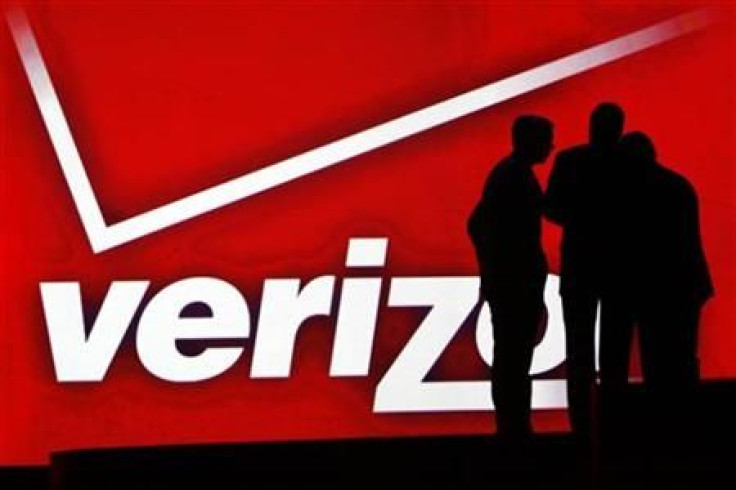Striking Verizon Worker: 'Job Security' Is the Issue

A striking Verizon worker in New York said Monday job security is the reason he and other workers are picketing.
"Everyone is saying the biggest issue is the health benefits, but it's not," said a Verizon technician picketing at West Broadway in Manhattan, who wished to only be identified as Greg. "Job security is the biggest issue. You spend half your career working on something and they want to do away with it."
Thousands of striking Verizon workers were joining picket lines and rallies on Monday at locations from New York to Massachusetts to Virginia.
About 15 Verizon workers protested in front of one of the company's Manhattan storefronts, decrying the current strike. The group had been out on the street since 12:01 a.m. EDT on Sunday, rotating in and out striking employees to maintain the picket line.
The contract for 45,000 Verizon employees expired at midnight Saturday without agreement on issues including health care costs and pensions.
In addition to New York, picket lines are also going up in Rhode Island, New Jersey, Pennsylvania, Maryland, Delaware and Washington, D.C.
While 45,000 workers are on strike, about a quarter of Verizon's total workforce, the company has begun to hire and quickly train managers and contractors to pick up the slack. The company, despite posting first-quarter profits, is claiming that its business has declined over the past decade as more competition entered the market, and thus said it needs to make some cuts.
Verizon's intention to force workers to pay for health care and take away holidays, affects workers like Greg on a personal level.
"It's almost become personal," he said. "I've been here 32 years and worked very hard and you take it personally. They are giving our jobs to somebody down South, taking our food right off our table."
Another striking Verizon employee agreed.
"You take pride in your job but they want to take everything away from you," added Verizon employee Bob McDermott.
There has been some speculation that the strike could affect the company's share price, but the biggest impact could be on the company's customer service reputation.
"This could be very bad for Verizon," McDermott said. "They are pushing hard for its Fios service, claiming it is better than competitors, and then this happens. It puts a bad taste in everyone's mouth."
Right now both sides seem prepared to deal with a long strike, as McDermott and others indicated that the two sides appear far apart in negotiations.
This is the second strike between unions and Verizon over the past 11 years, and one Manhattan worker speculated it could be as long as the three and a half month strike in 1989.
In 2000, about 87,000 employees were out on strike for 18 days and it had a noticeable impact on the company's service. That strike, which took place in early August, caused many service calls to not be answered until September.
"These aren't negotiations, they're an insult," International Brotherhood of Electrical Workers manager Bill Huber told Bloomberg News. "This is a clear attack on our unions."
While Verizon could see hits to its service reputation, Verizon landline workers on strike are forced to deal with bills piling up with no paycheck coming in.
"No one wins in a strike," McDermott said.
© Copyright IBTimes 2024. All rights reserved.











